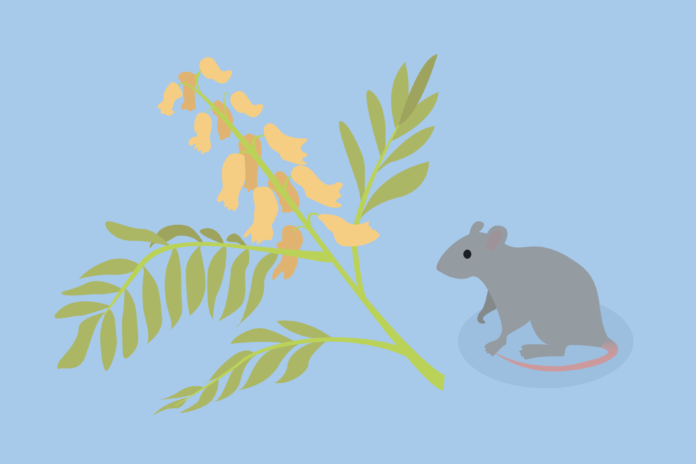UC Davis researchers partnered a synthetic drug with a new plant product to reduce neuroinflammation
By MONICA MANMADKAR — science@theaggie.org
Kurarinone, a plant product derived from a pea plant, was combined with an enzyme inhibitor to create a method to alleviate neuroinflammation in Parkinson’s disease. Partnered with researchers at the Dalian Medical University in China, a team of UC Davis researchers at professor Bruce Hammock’s Laboratory published their findings in a paper in the Proceedings of the National Academy of Sciences.
Around six years ago, Hammock’s team discovered that the inhibition of an enzyme called soluble epoxide hydrolase through kurarinone could potentially be beneficial to Parkinson’s disease, as it helps reduce neuroinflammation.
“We found [that the enzyme] controlled a branch of the arachidonate cascade, where aspirin and Advil work, and it increases pain and inflammation,” Hammock said. “So when we inhibit this enzyme it controls pain and inflammation.”
After their discovery, the team pursued this finding by developing a synthetic drug through a Davis biotechnology company, Eicosis. In addition, they found a natural inhibitor of the targeted enzyme from plant metabolites from plants around the world.
“The breakthrough for this project has been a collaboration with Professor Cheng-Peng Sun in China,” said Dr. Christophe Morisseau, an associate research scientist in the Department of Entomology.]. “[Sun], an expert in natural products from traditional Chinese Medicine, got the idea to test a chemical from a plant used in Chinese medicine to treat inflammation-related diseases.”
Based on previous research, the natural compound which is derived from the dried root of Sophora Flavescens, a shrubby sophora plant, is known to reduce inflammation. The researchers knew that decreasing neuroinflammation is necessary to reduce the advancement of Parkinson’s disease.
With further testing, the researchers were able to find that this plant product was able to reduce neuroinflammation in an animal model with Parkinson’s disease. Working with the team from China, Morisseau hopes that their work may lead to an effective therapy against Parkinson’s disease, with either a natural or synthetic compound.
“This involves a lot of money and time to determine that the compound is not toxic and efficient in human and animal models are not the same as people,” Morriseau said.
He continued to state how it is not easy to give medicine to a person suffering from Parkinson’s disease. Hence, with a nature-based product, it could be easier to treat the patient by incorporating the medicine into food or a drink.
Written by: Monica Manmadkar — science@theaggie.org









